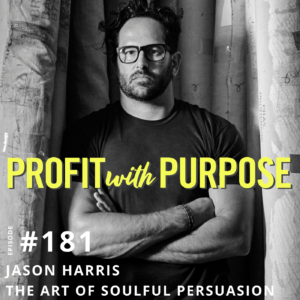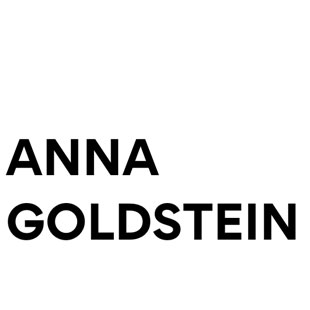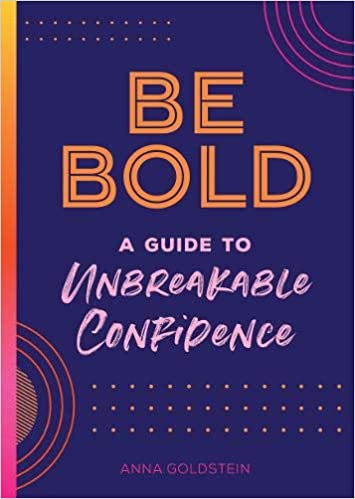Jason Harris is Co-Founder and CEO of Mekanism, an award-winning creative advertising agency. Jason is the author of The Soulful Art of Persuasion that highlights the 11 habits you need to become more authentically or soulfully persuasive. He proves that persuasion is not a dirty word, but the most positive, productive, and ethical way of changing peoples’ minds through the cultivation of character building habits.
Become a person with more fulfilling experiences and more authentic personal relationships! Tune in to this episode to learn the power of positivity and persuasion, collaboration, storytelling, building lasting relationships, and actionable habits that you can implement to become a master influencer.
 Why did you write The Soulful Art of Persuasion? What was the inspiration behind it?
Why did you write The Soulful Art of Persuasion? What was the inspiration behind it?
He’s an avid reader, listener of podcasts, and loves reading business books. As an entrepreneur, he’s figuring out how other people approach business and sales, so he consumes that type of content. It dawned on him that there’s something different about the way he approaches business and the principals he follows compared to everyone else’s approach. He saw transactional, short-term methods of building a business rather than relationship and long-term focused methods. He had a different angle and a different thing to say in the business book atmosphere. To Jason, the idea of being a soulful persuader and influencer is being an influencer in your personal and professional sphere.
What are the core principals of your book and how did you develop these principals?
Jason worked at a lot of different companies before starting his own and he felt like he didn’t respond well to a lot of the company cultures he was experiencing. There wasn’t much of a space where people could feel truly themselves and be original, so he learned a lot of what he wanted to create and the ways he wanted to work from seeing what other people were doing, both positive and negative. He kept a journal of these ideas and beliefs until he developed the four core beliefs that he follows to this day. The four principals are: be original, be generous, be empathetic, and be soulful. His inspiration also came from books he was reading, the way people made him feel, and seeing success growing from long-term relationships.
How did you decide that those four, out of all the principals we could live by, were essential?
The 11 habits he mentions in the book fall under these categories. Being soulful came last to him, but the other three came from a balance of business, how he wants to pursue his life, and the type of person he wants to be. Some of the habits came naturally to him and some he had to practice and develop over time.
What’s an example of something that was not natural for you?
Jason isn’t a naturally generous person. He says he was born on the more self-absorbed and slightly selfish side. Through work and growing up and his experiences, he realized that it’s a characteristic that’s really important.
When working with big brands, how do you tell a story that can build a sense of trust, but that is also not transactional?
You can’t always do that. They’ll send you a brief of what to talk about and then you come up with the creative work off of that brief. You have to absorb what they’re saying and what they want to accomplish, then crack the creative and spit it back to them with ideas that position the brand in a way that you feel is right. It’s always a dance with what you feel the audience will respond to and what the brand thinks they will respond to. He tries to embody the principals of being original and knowing the audience.
Do you think the art of storytelling in a way that connects with the person or brand applies to long-term relationships?
Definitely, 100%. When he talks about relationships, there are personal and professional relationships and you have to approach them in a similar fashion.
Can you share with us your journey and how you got to where you are now?
Jason is an odd duck in the sense that he knew he wanted to be in advertising at the age of 12 or 13. Both his parents were teachers so he grew up in an academic household. He was a TV junkie and would always break down and study the stories in between the shows he watched. He realized that must be a fun job to create those advertisements and the first time he thought he was persuaded was around the same age when the band KISS transported him through storytelling.
Stories can be from your heart, your life, books you love, music, and movies. Success in a lot of areas is built on storytelling techniques.
Did you get your degree in advertising?
Jason got his degree in economics to make his parents happy, then he hustled to get his foot in the door at a design firm, then a few advertising agencies doing direct mail, strategy, and production. He got a feel for how business is done and what it’s like through these different areas of the companies. With a decade of advertising under his belt, he started a production company, and then a couple years later, he co-founded Mekanism which has been around for over 10 years.
Looking back, had your journey been a bit confusing but now makes sense?
Yes, when you start out, it meanders a lot and he did have aspirations to open his own company after college. He didn’t know exactly what area or that he wanted to be CEO but he had that entrepreneurial spirit. It’s interesting how your journey can be both focused and flexible. The hardest thing is figuring out the industry you love and what skills you have that you can apply in that industry.
What’s an obstacle, fear, or limiting belief that you feel like you encountered in your journey of figuring out the path that you really wanted to be on?
For Jason, he likes to have control. When he moved to having partners, from having all the control in his own company, the limiting thing for him was: can he learn to let go and let other people take the reins and control their areas? That was a really hard thing for him to learn and he feels like he’s good at it now, after a few years of learning.
How do you build trust?
Today more than ever, trust is so important because we’ve gotten so entrenched in our beliefs. We watch the stations and follow the social media that are going to tell us what we believe is right. We have to try and open this view about the idea about empathy and understanding and being curious about other people. That builds trust. When we, in business, think about techniques like mirror matching our audience to help sell something, that’s not building trust, that’s not being vulnerable or showing who we are. When you’re allowed to tell stories to people you might not even know, that allows them to do the same, and it allows trust to be built. Listening and trying to learn more than you might be judging other people also builds trust.
Empathy allows you to collaborate better. That’s another aspect of persuasion, joining forces with other people. Look at other people and see that we’re really not that different from each other. Seek the common ground and approach everyone as an equal, thinking about collaboration.
Can you share one or two of these 11 habits that can be really simple and practical that we can apply today?
One thing Jason always thinks about in business is this notion of never be closing. It’s an idea of shifting your thinking, when you’re thinking about any deal, and going against the transactional way of thinking that will sabotage your attempts at persuasion. Thinking about building a relationship rather than closing the deal. If you do that, the impact of what you’re actually trying to close magnifies.
Another thing is trying not to let your relationships drop to zero. Think about reaching out to five people every week to keep those relationships going. When it comes to social media, how do you think about sharing your interests with everyone vs reaching out and sharing with a particular person or group of people that would care about that issue.
Could you post something on Instagram and share it personally with another person?
Either way, it’s the ability of thinking about it as an act of generosity and thinking of who might benefit from this piece of knowledge and the connection. It’s the mindset that makes a big difference.
Can you share a story of a time where you didn’t have a relationship with somebody but you wanted to foster one and the process you went through to make that happen?
Jason shares about a business relationship where he met an interesting guy at a conference, how he wrote him a letter about how great he thinks his brand is and sent him a Mekansim hoodie. That meant a lot to him and about six months later, they decided to put the business up for review and threw Mekansim into the mix because he had that memory on his chest all the time. Now, they’ve been working together for over six years.
Let me know if you agree, I think complementing people is so underused.
Jason agrees! Reach out to your role models to express your thoughts and the impacts of the business on you personally. Let them know you’d love to have a follow-up conversation about it, that’s how you build a relationship. There’s so few people who do that nowadays and when someone does that, it’s super powerful. Part of persuasion is that awareness of the other person and generosity, acknowledgement, and research on who you want to network with can be very similar to complements.
What’s a question you ask yourself a lot in terms of business in order to move it forward?
He’s always thinking about: are the messages that we’re putting into the world positive stories? Are we filling the world with more positivity or are we just adding to the negative noise?
What’s the best advice you’ve ever been given?
This idea that business is a marathon and not a sprint. Building your career doesn’t have to happen as fast as you think it has to happen. Allow yourself to realize that you can take time with it. Allow yourself to know that relationships do take time and work and you always have to exercise that muscle.
I think the essence of business is relationships, what’s your take?
Yeah, that’s all it is. It’s relationships with people and that’s it.
Any last thoughts?
The idea of soulfulness in business – something that’s helped Jason is trying to be inspirational in whatever career or industry he’s in. It does help you become more influential and feel good, putting positive things out there and inspire by giving back. Direct your skill(s) towards something that’s bigger than yourself, like teaching tennis in low-income areas. It’s a very important aspect of success.
Do you use the word intention in your work?
He doesn’t but now he’s going to because he really likes it and it’s important!
Connect with Jason + Get his book: www.thesoulfulart.com
Instagram: https://www.instagram.com/jason_harris

Search
Popular Posts
- 02 Mar 2008The Flowering of Human Consciousness 7 Comments
- 01 May 2014Using Visualization to Create What You Want 7 Comments
- 26 Mar 20133 Questions to Change Your Career 4 Comments
- 14 Mar 2014I walked on Fire! 4 Comments
- 29 May 2014How to Bust Through Your Fear 4 Comments

